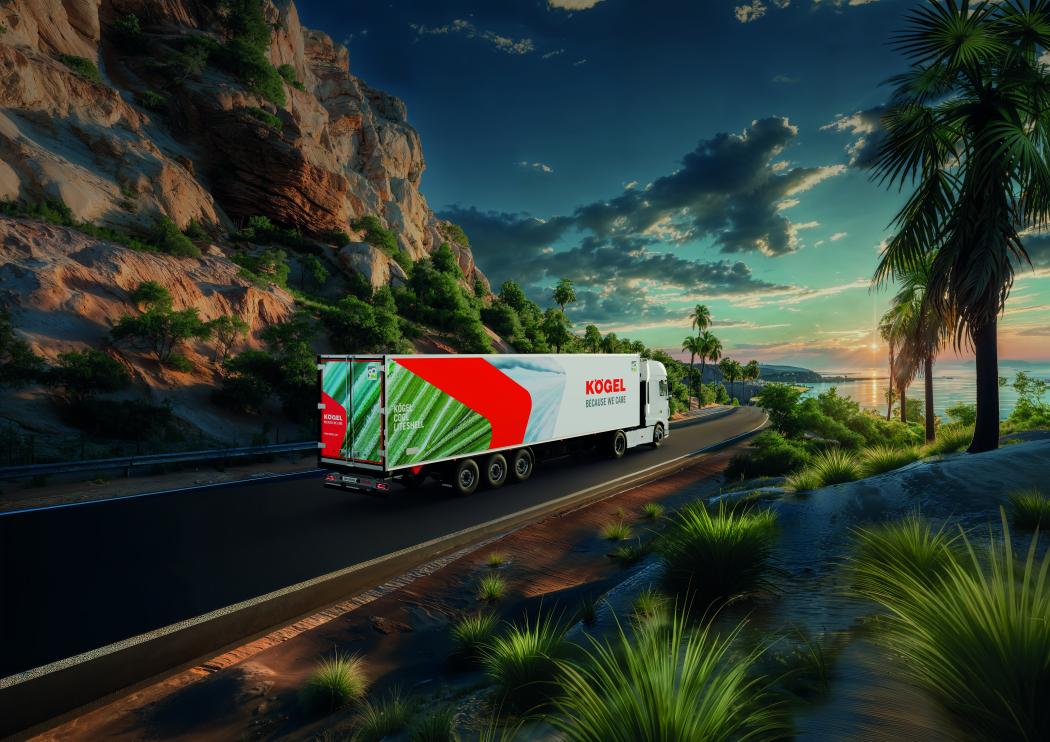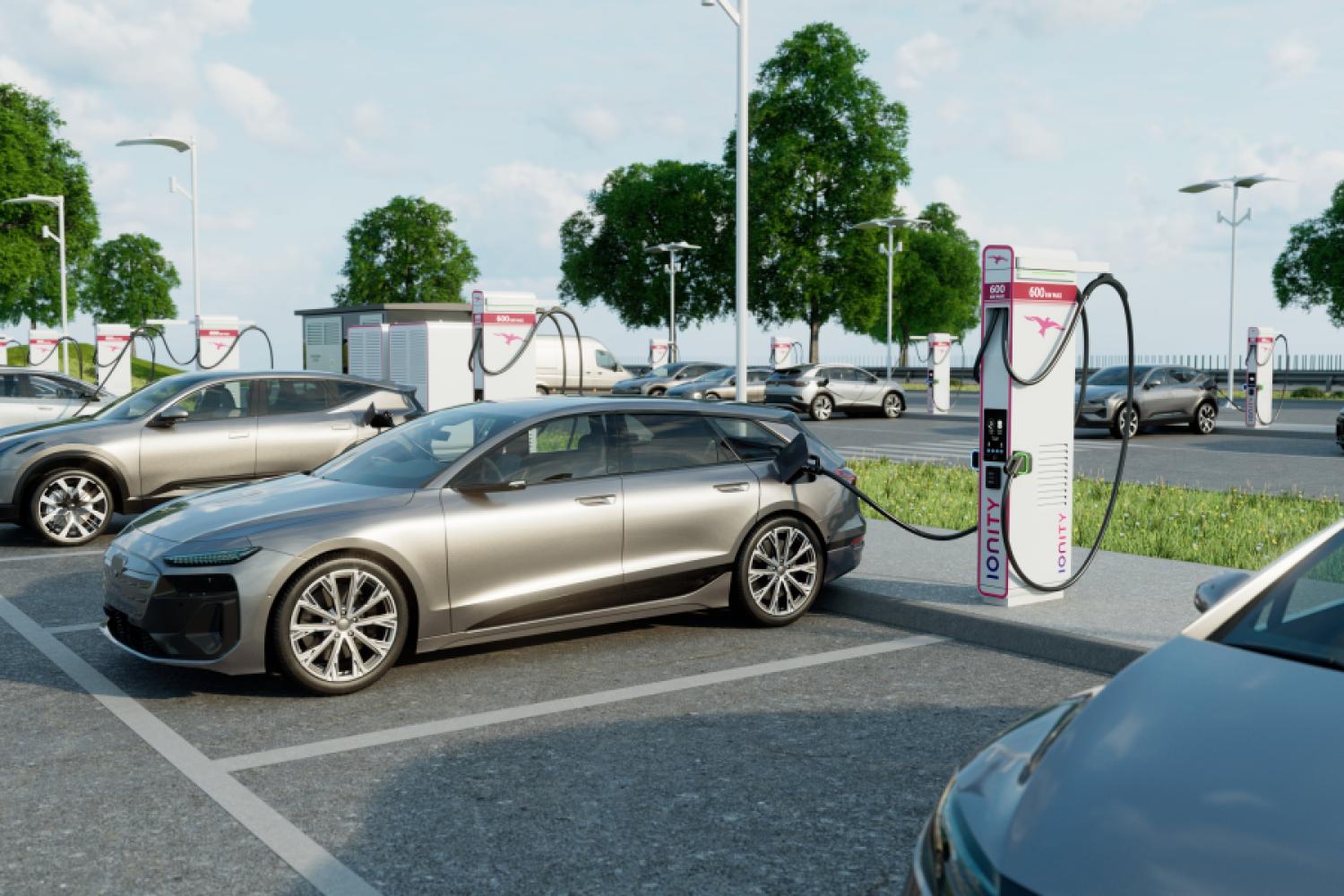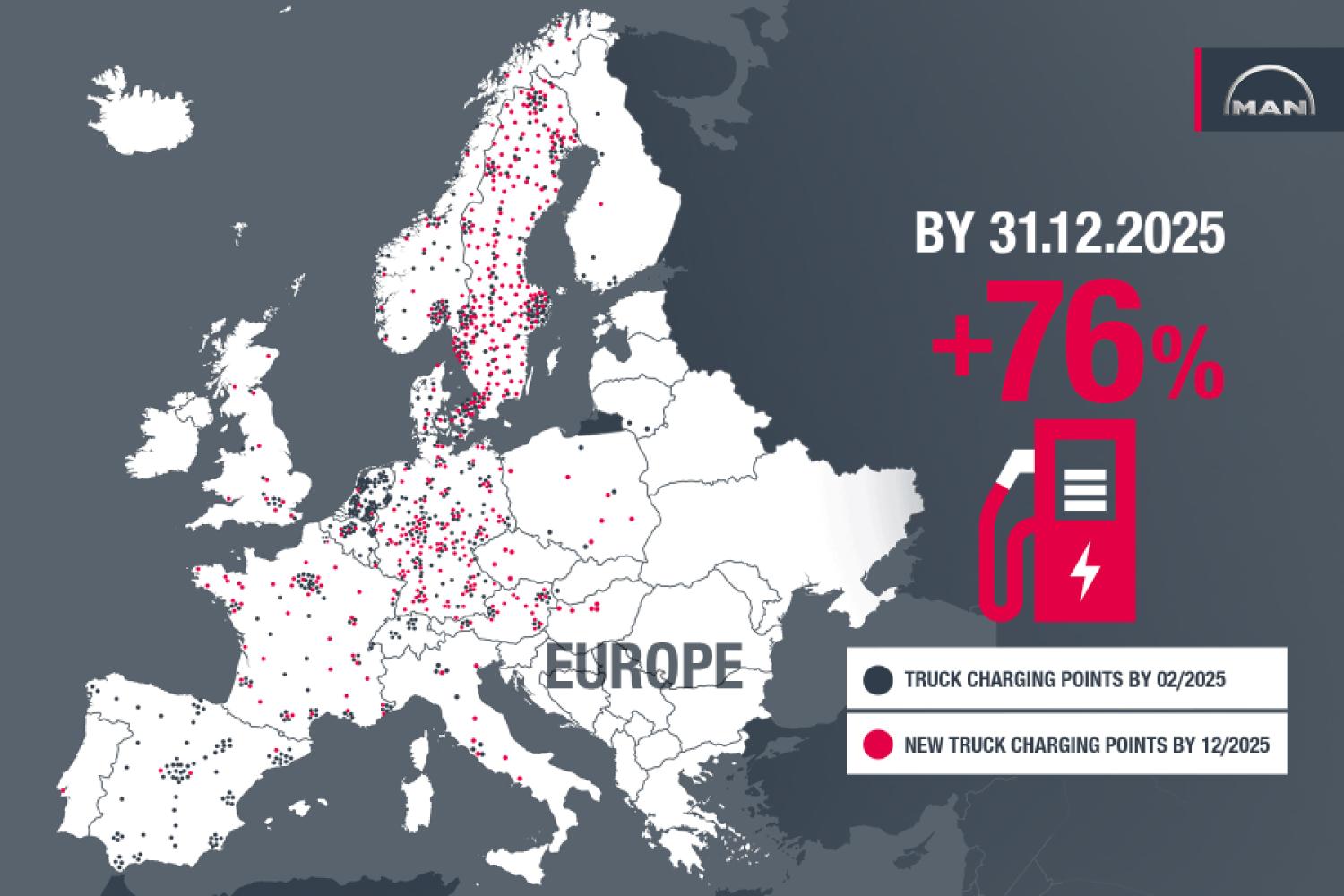For the first time, trailer specialist Kögel presented its new refrigerated vehicle, the Cool Liteshell Trailer, to the public at the IAA 2024. The product, designed for use in temperature-controlled logistics, is manufactured using special materials and new production processes that, according to the supplier, reduce the tare weight by a whole 700 kilograms. As a result, fuel consumption can be reduced, more range achieved, and payload capacities increased. With this product, one of the largest German manufacturers of semi-trailer and commercial vehicle trailer solutions was also awarded the International Trailer Award (ITA) 2025 in the "Concept" category at the commercial vehicle trade fair.
Efficient and sustainable refrigerated vehicles are highly sought after in the increasingly digitized logistics world with its just-in-time fresh logistics. "Efficiently maintaining cold chains is of utmost importance and is immensely significant for a smoothly functioning economy," emphasizes the expert for commercial vehicle trailers, who has been developing trailer solutions for nine decades and is one of the top three manufacturers in Germany in this field.
In addition to this challenge, ever stricter regulations for transport and new quality standards for sensitive and perishable goods are being imposed, prompting manufacturers to search for more economical solutions for their customers. This led to the development of the Kögel Cool Liteshell, a new generation refrigerated vehicle manufactured in a lightweight construction.
Without Steel – Less Energy Consumption, Reusable
The roof and side walls of the semi-trailer are made in Liteshell panel technology, which foregoes the usual steel outer layer on the polyurethane (PU) insulation layer. Instead, the core is made from milled PU rigid foam blocks and is covered with a layer of fiberglass mats and a second outer shell of thermoplastic polyurethane (TPU). According to Kögel, the "not really effective" steel outer layer is generally energy-intensive to produce. However, the new exterior wall structure offers the advantage of being reusable as a functional material in the construction sector.
More Stability, More Insulation
Additional insulating effect is provided by crossbeams made of fiberglass-reinforced plastic panels (GFK) in the vehicle floor, which according to the manufacturer, insulate better than "market-standard wooden crossbeams": as the high stability of the GFK panels allows for a reduced material thickness, which allows an increase in foam volume by about 20 percent.
According to Kögel, the outer skin of the refrigerated vehicle is more robust and elastic and thus more resistant than previous solutions. Another advantage besides the reduction of external influences is the use of a continuous surface through the new design: this reduces the "exposure" to damage such as those caused by snagging branches. "As a result, the surface is better protected against light impacts and minor damages," it says. And should the outer shell actually sustain any injuries, minor damages could be repaired directly on-site using TPU patches: the more flexible surface thus enables less complex repairs than those required by paint jobs.
Lower Emissions due to Higher Payload
Overall, the manufacturer from Burtenbach expects a fuel saving of 0.3 liters per 100 kilometers and thus a reduction of 8 grams less CO2 emissions per kilometer, which equates to about one percent. Over the entire lifecycle of the vehicle, Kögel calculates a saving of 22,000 kilograms in CO2 emissions or 1.2 tons per year with a mileage of 150,000 kilometers. In other terms: thanks to the higher payload and full loading made possible by the weight savings, practically every 32nd trip is eliminated.
Electric Components
With its system partners, the commercial vehicle axle specialist BPW and the manufacturer of transport refrigeration units Thermoking, Kögel has also designed its new concept for use with "highly efficient" E-components. The vehicle can use the ePower generator axle from BPW specifically developed for electric drive of refrigeration units during temperature-controlled transport, which harnesses energy from braking and driving. The electric axle also complies with the simulation tool "Vecto" deployed by the European Commission to assess CO2 emissions in commercial vehicles.
At the ITA-Award, Kögel also scored - like several other premium trailer manufacturers - in another category: the company achieved 2nd place in the "Components" category for its underrun protection.
The International Trailer Award, initiated over 20 years ago and known as "Trailer Innovation" until 2023, is considered the most significant award for trailer manufacturers worldwide. It is always presented at the biennial IAA Transportation (formerly IAA Commercial Vehicles) during the VDA (German Association of the Automotive Industry) gala event "IAA Stars of the Year." The top three in the seven categories—Body, Chassis, Components, Concept, Environment, Safety, and Smart Trailer—are honored.
The expert jury consists of a group of currently 14 specialized journalists from various European commercial vehicle magazines. The only requirement for manufacturers to participate is that the presented innovation must deal with the "trailer, semi-trailer, or bodywork" and not with the motor vehicle. The new round of the award will begin in early 2026 and will then be presented at the IAA Transportation in Hanover in September 2026.






